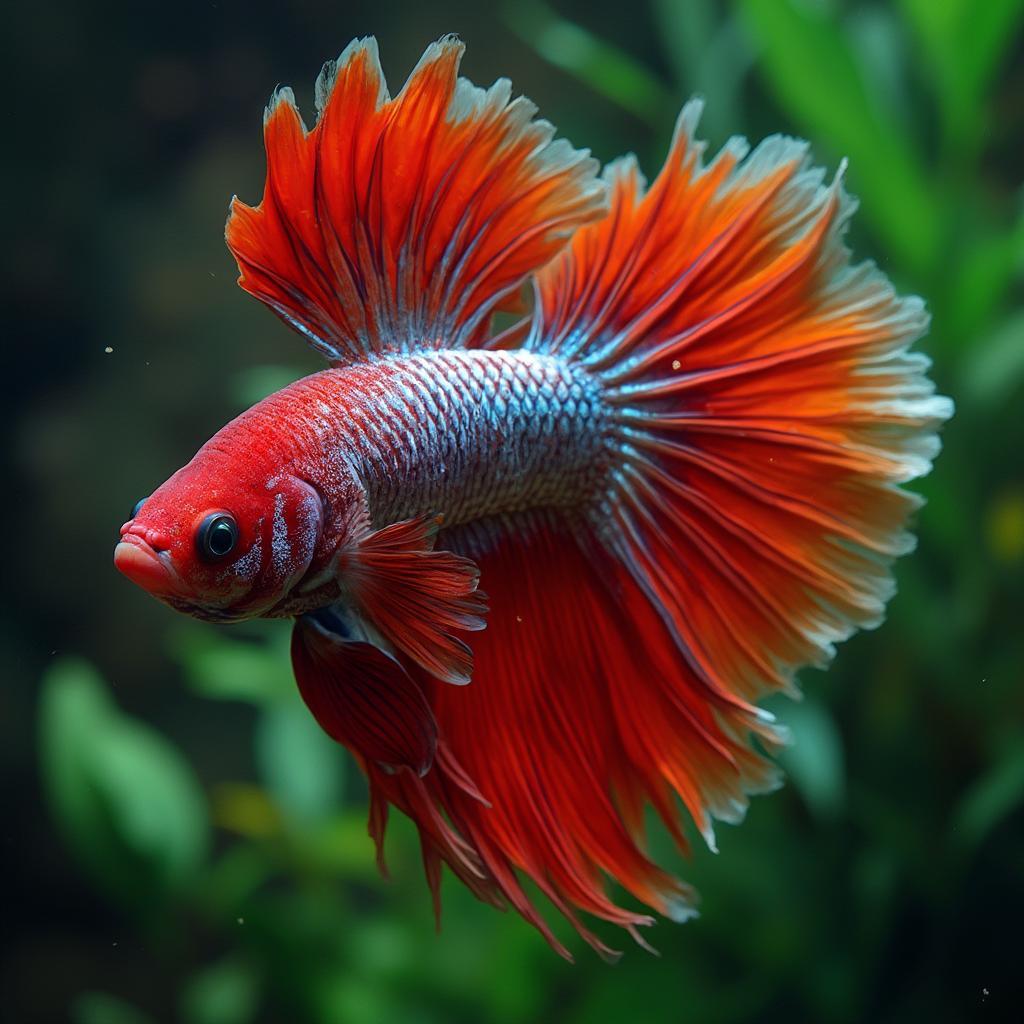Your cart is currently empty!

Betta Fish Care Tips in Hindi
Betta fish, known for their vibrant colors and flowing fins, are popular pets. If you’re seeking Betta Fish Care Tips In Hindi, this comprehensive guide will equip you with the knowledge to provide a thriving environment for your betta.
Understanding Your Betta’s Needs
Betta fish, also called Siamese fighting fish, originate from the shallow, slow-moving waters of Southeast Asia. Understanding their natural habitat helps us replicate ideal conditions in a home aquarium. This involves considering factors like water temperature, pH levels, and tank size. Providing a suitable environment is crucial for the health and longevity of your betta.
Water Quality is Key
Maintaining pristine water quality is paramount for betta fish care. Regular water changes are essential to remove waste products and maintain a healthy ecosystem within the tank. Use a water conditioner to remove chlorine and other harmful chemicals from tap water before adding it to the aquarium. The ideal water temperature for bettas is between 78-82°F (25-28°C).
Tank Size Matters
While bettas can survive in smaller containers, they thrive in larger tanks (minimum 5 gallons). A larger tank provides more stable water parameters and allows for more swimming space, reducing stress and promoting overall health. Avoid overcrowding the tank with too many decorations or other fish, as this can restrict movement and create territorial disputes.
Feeding Your Betta
Betta fish are carnivores and require a diet rich in protein. High-quality betta pellets or flakes should form the basis of their diet. Supplementing with occasional treats like bloodworms or brine shrimp can provide variety and enrichment. Avoid overfeeding, as this can lead to digestive issues and water quality problems. Feed your betta small portions twice a day.
Choosing the Right Food
Select betta-specific food to ensure your fish receives the necessary nutrients. Avoid generic fish flakes, which may not contain the appropriate protein levels for bettas. Observe your betta’s eating habits and adjust the feeding schedule and portion sizes accordingly.
Common Betta Health Issues
Like all pets, bettas are susceptible to certain health problems. Fin rot, ich, and swim bladder disease are some common ailments that can affect bettas. Early detection and treatment are crucial for a positive outcome. Quarantine any new fish before introducing them to your main tank to prevent the spread of disease.
Recognizing Signs of Illness
Be vigilant in observing your betta’s behavior and appearance. Lethargy, loss of appetite, clamped fins, and discoloration are all signs that your betta may be unwell. Consult a veterinarian or aquatic specialist for diagnosis and treatment recommendations.
 Signs of a Healthy Betta Fish
Signs of a Healthy Betta Fish
Conclusion
Providing proper betta fish care ensures a happy and healthy life for your aquatic companion. By following these betta fish care tips in Hindi, you can create a thriving environment for your betta to flourish. Remember that consistent care, a suitable environment, and a nutritious diet are key to your betta’s well-being.
FAQ
- What is the ideal tank size for a betta fish? (A: Minimum 5 gallons)
- What is the ideal water temperature for bettas? (A: 78-82°F or 25-28°C)
- How often should I change the water in my betta tank? (A: Partially every week, fully every month)
- What should I feed my betta fish? (A: Betta-specific pellets or flakes, supplemented with occasional treats)
- What are some common betta fish diseases? (A: Fin rot, ich, swim bladder disease)
- How can I tell if my betta is sick? (A: Lethargy, loss of appetite, clamped fins, discoloration)
- Where can I find more information about betta fish care? (A: Consult a veterinarian or aquatic specialist)
Common Betta Fish Care Scenarios
- Cloudy water: This often indicates a bacterial bloom and requires a water change and potential filter cleaning.
- Betta not eating: Could be due to stress, illness, or inappropriate food. Check water parameters and try offering different food types.
- Torn fins: Can be caused by sharp decorations or fin rot. Address the cause and treat accordingly.
Further Exploration
For more detailed information on specific aspects of betta care, consider these resources:
When you need assistance, please contact us via WhatsApp: +1(641)206-8880, Email: [email protected], or visit our office at 456 Pine Avenue, Toronto, ON M5V 2J4, Canada. Our customer service team is available 24/7.

Leave a Reply